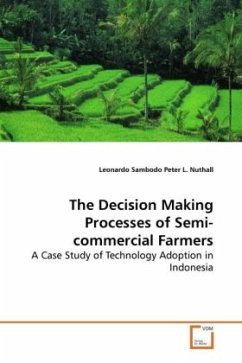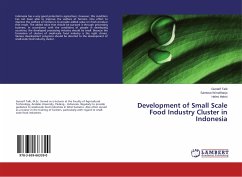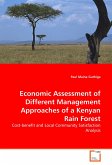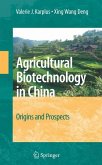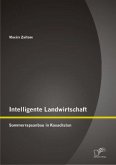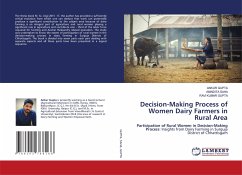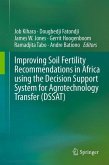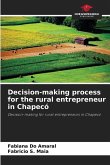To date little information is available for
describing the actual process of farmers reasoning
processes in creating simple rules in their decision
making. It is critical as farmers often use the rules
as a means to deal with complex situations,
particularly when subsistence is an issue. Farmers
reasoning processes are also unlikely to be
straightforward thus requiring approaches capable of
capturing the intricacies of farmers thought
patterns and paths. This book, therefore, offers an
analysis using the Theory of Planned Behavior,
Personal Construct Theory and Ethnographic Decision
Tree Modeling to trace the origins of subsistence
farmers' beliefs, and extract the critical elements
and paths in their decision making systems. The
analysis should help explain how farmers cognition
and simple decision rules give rise to a particular
decision or behavior, and provide a more realistic
description of the farmers' decision-making process.
The results should be particularly useful to
academia, agricultural researchers, extension
services and policy makers who seek better ways to
assist farmers, particularly with respect to
developing countries.
describing the actual process of farmers reasoning
processes in creating simple rules in their decision
making. It is critical as farmers often use the rules
as a means to deal with complex situations,
particularly when subsistence is an issue. Farmers
reasoning processes are also unlikely to be
straightforward thus requiring approaches capable of
capturing the intricacies of farmers thought
patterns and paths. This book, therefore, offers an
analysis using the Theory of Planned Behavior,
Personal Construct Theory and Ethnographic Decision
Tree Modeling to trace the origins of subsistence
farmers' beliefs, and extract the critical elements
and paths in their decision making systems. The
analysis should help explain how farmers cognition
and simple decision rules give rise to a particular
decision or behavior, and provide a more realistic
description of the farmers' decision-making process.
The results should be particularly useful to
academia, agricultural researchers, extension
services and policy makers who seek better ways to
assist farmers, particularly with respect to
developing countries.

